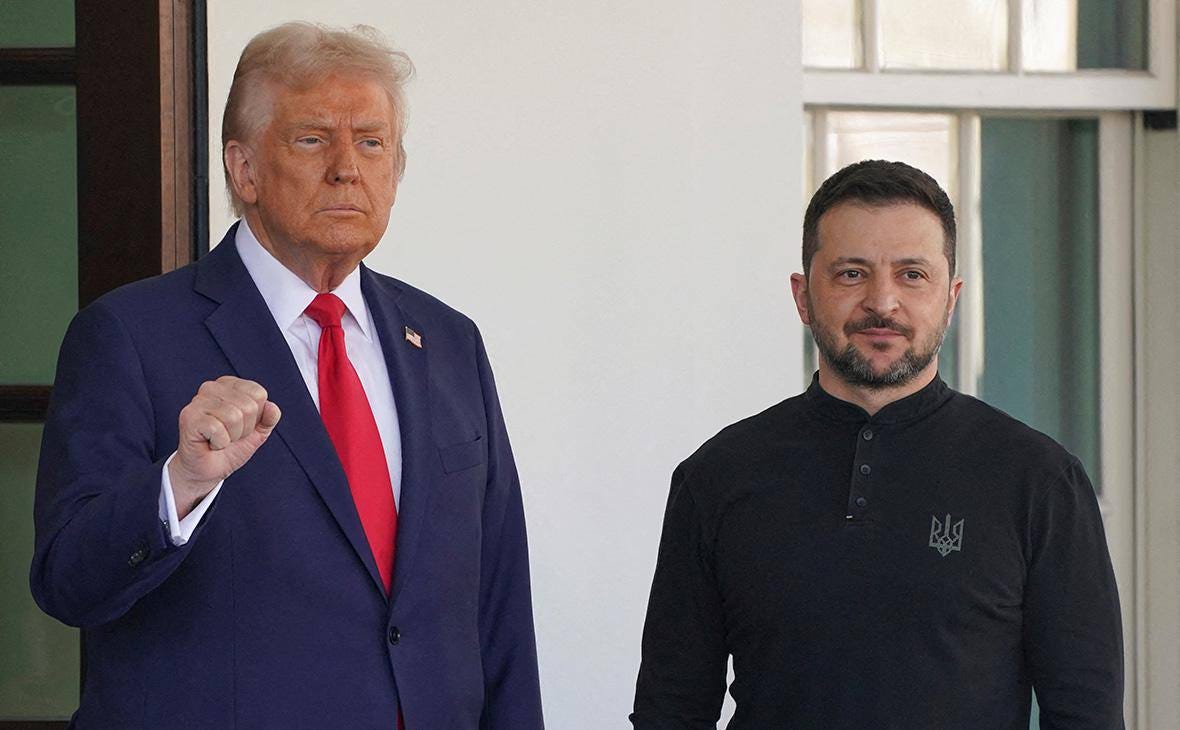Ukraine Agrees to Complete Ceasefire—But Will Or Should Russia?
What would you do if you were Putin?
The conflict in Ukraine has taken a significant turn, with Kyiv officially agreeing to a temporary, 30-day ceasefire proposed by the United States. However, as Russia makes notable battlefield gains, including entering the town of Sudzha, the question remains: Should Moscow accept this truce, or is it in their interest to continue pressing forward?
Ukraine Accepts U.S. Ceasefire Proposal
In a major diplomatic move, Ukrainian President Volodymyr Zelensky announced that Ukraine had accepted the U.S. proposal for a total ceasefire across the entire front line, as well as in the air and at sea. This marks a shift from Ukraine’s initial push for an "air-sea" truce, which Kyiv was willing to compromise on in favor of a broader cessation of hostilities.
Andriy Yermak, head of Zelensky's office, confirmed that Ukraine and the U.S. have agreed to immediately form negotiation teams to begin talks aimed at securing a lasting peace. In return, Washington has reportedly restored intelligence sharing and military assistance to Ukraine—an important factor given Kyiv’s current challenges on the battlefield.
The ceasefire proposal has also garnered international backing, with the European Union voicing support. The U.S. hopes that Russia will reciprocate, with Secretary of State Marco Rubio stating that Ukraine’s acceptance was a "positive step" and urging Moscow to engage in negotiations.
Moscow’s Dilemma: Tactical Gains vs. Long-Term Stability
While Ukraine's readiness for peace has been somewhat communicated, Russia’s position is less certain. President Vladimir Putin, speaking at a recent Security Council meeting, reiterated that Russia is open to dialogue but is seeking a long-term peace rather than a temporary truce.
Putin emphasized that Moscow's primary concern is eliminating the root causes of the crisis, rather than agreeing to a short-term ceasefire that could allow Ukraine to regroup and rearm. The Kremlin’s focus remains on securing what it views as Russia’s strategic interests in the region.
This stance raises questions about whether Russia sees any benefit in halting military operations at a time when it is making gains on the ground. The recent entry of Russian forces into Sudzha is just one example of momentum that Moscow may be reluctant to interrupt.
Trump Pushes for a Ceasefire
Adding another layer to the situation, U.S. President Donald Trump—who has expressed his intent to mediate the conflict—has stated that he hopes Russia will accept the ceasefire. Trump, who plans to speak with Putin later this week, suggested that if Moscow agrees, it would represent "75% of the way" to resolving the conflict.
Additionally, Russian Foreign Ministry spokeswoman Maria Zakharova has indicated that Russia does not rule out contact with U.S. representatives in the coming days, signaling that dialogue remains an option.
A Temporary Ceasefire or a Road to Real Peace?
The central issue for Russia is whether this proposed truce is a genuine step toward ending the war or merely a tactical pause that benefits Ukraine and its Western allies. If Moscow views it as the latter, it may be unwilling to halt its operations, particularly as its forces advance.
At the same time, rejecting the ceasefire outright could bring increased international pressure and potentially deepen Western support for Ukraine. The U.S. has already signaled its commitment to strengthening Ukraine’s economy by fast-tracking agreements on critical minerals, reinforcing Washington’s long-term stake in Keiv.
Ultimately, the question remains: Will Russia agree to a temporary halt in fighting, or will it continue its military push while waiting for negotiations on its own terms? The coming days will be crucial in determining the next phase of this war.
What would you do?







Literally why in their right mind would Russia stop now? The West has broken their agreements 100% of the time and used any time-out to re-arm Ukraine. Of course Ukraine will agree to a time-out to get re-armed. Well duh. 🙄 Now fully anticipate the MSM to freak out when Russia (hopefully) denies the ceasefire but who even cares about the MSM at this point. Wars are not won by PR gimmicks.
While it’s not up to me to decide what Russia should or should not decide, I don’t see how it would be in their interest to agree to a cease-fire without clear concessions in return. If experts like Macgregor are accurate, what do they have to lose by continuing the SMO?
Our western elites and media will call them bad names?
They’ll send more weapons to Ukraine?
What has changed to motivate the Russians to agree to a cease-fire?